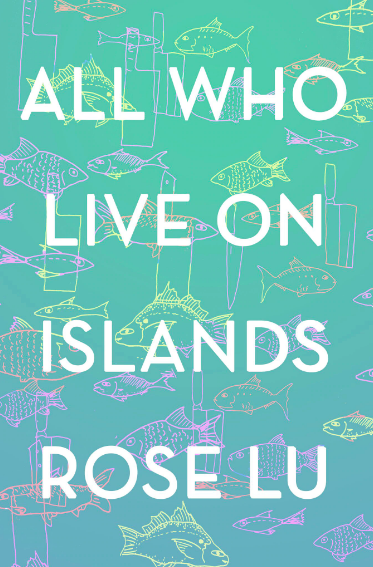

This is a collection of autobiographical essays but because the prose is so beautiful it reads like fiction, like a series of stories about family, friendship, growing up, about romantic relationships, reconciling with your immigrant identity and navigating liminality.
Rose Lu is Chinese-New Zealander and the book is multilingual, English and Chinese (Mandarin and Chóngmíng). Unlike most books, where the second language is usually relegated to footnotes or italics, Lu purposefully makes Chinese quotes and snippets equal to their English translations, parallel in the main text.
“This was a deliberate choice [...]. In this book I wanted to centre a multilingual perspective, a world view that is more common than English grammatical conventions would lead us to believe.” (“A Note on Languages” in the book)
This choice isn’t just a stylistic innovation or a political statement, it’s a symptom of Lu’s broader intentionality and precision with language and it’s that precision that makes All Who Live on Islands one of my favourite bisexual books I’ve discovered so far.
Each essay consists of smaller sections, short anecdotes, observations, slices of life. They flow naturally and are infinitely readable but are carefully selected to convey Lu’s point and paint a picture. “It’s like listening to a great friend yarn about their life, perfectly sure that their life is interesting. And they’re right.” as one critic put it.
Year of publication:
2019
Country of publication:
New Zealand
Page count:
240
Would I recommend this book?
Yes!
Lu directly confronts dilemmas of minority literature - both as a reader and a writer. She recounts reading a lot of Chinese-American and Chinese-Australian writing in a quest to find books she could see herself in. However, American and Australian books only partially resonated with her because the small, isolated New Zealander context is simply too different (“Here there is no Chinatown to gentrify, no fraternities at college.”) - a crucial point rarely discussed when it comes to “diverse books” dominated by American publishing.
She also touches on the pressure on writers of colour to be both “authentic” and “good representation”. She understands both the exclusionary nature of the publishing industry and the marketing appeal of minority literature. She’s aware of the pressure of her own writing ("I know it will be seen as an act of Asian New Zealand representation. Many non-Asian readers will see the need to engage with only one text like this").
In a media landscape that too often reduces diversity to a marketing strategy and sanitises it for a broad appeal, such a critical perspective is refreshing. Lu’s realistic understanding of the publishing industry allows All Who Live on Islands to be both uncompromising and warm.
When it comes to bisexuality, essays include stories of her boyfriends, first girlfriend, first kiss and first time having sex, of navigating coming out, a brief mention of a bisexual friend ("We’re both bisexual, but end up wasting more time on men."). Bisexuality isn’t the focus of the book, but it’s also not relegated to one essay and then forgotten, it’s simply a fact of life that pops up throughout the book via Lu’s relationships with different people and some direct discussions.
Lu won the Creative Nonfiction Prize at the International Institute of Modern Letters - she’s an immensely talented writer. All Who Live on Islands is a very strong debut and I’ll be following her career with a great interest.
